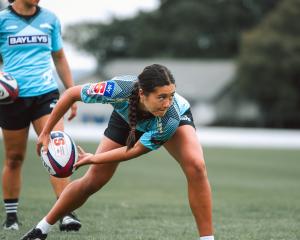
In a statement released last night by Sanzar, the new competition will be based around a conference system, and will begin at the end of February and finish at the start of August.
The competition will also have an expanded finals series, with the new package to be presented to its broadcasting partner, News Corp, at the end of next month.
The new 24-week Super competition guarantees each team a minimum of eight home matches and a 16-match regular season. A new six-team finals series includes an extra round, with two sudden-death qualifiers before the semifinals.
All teams will have a three-week bye while the tournament is suspended during the June test window, while the Tri-Nations series has also been given a new time slot in the calendar to run at the conclusion of Super rugby.
The expanded competition has a 2011 launch date, with the current broadcast agreement to expire at the end of 2010.
The location of the 15th team has not yet been decided and will be open to a tender process from all territories, with Sanzar making the decision on the new team's location.
The tournament will begin in the last week of February and conclude in the first week of August, except in 2011, when it will moved forward to accommodate the World Cup.
Teams will be divided into three national conferences of five teams each. The new team will compete in the Australian conference. The logical fit will have all the New Zealand teams playing against each other. Those teams play each other home and away.
Teams play four of the five teams from the other two conferences, with four home games, and four away.
The three conference winners and three wildcard teams with the highest number of competition points from any conference qualify for the play-offs.
The wildcard teams and the conference winner with the least competition points will play an elimination round to meet the two conference winners with the greatest number of competition points in the semifinals.
The Tri-Nations will always start in South Africa in mid-August and conclude with two of the three transtasman matches in early October to allow for early release of Springboks to the Currie Cup.
This will allow for Tri-Nations tests between particular teams in particular countries to become permanent fixtures on the rugby calendar.
New Zealand Rugby Union chief executive Steve Tew said the agreement was a welcome one for rugby in New Zealand, given the value that fans, players, partners and media here place on the strength of the southern hemisphere competitions and the contribution that makes to maintaining the competitive edge for rugby below the equator.
"We have said at every juncture that our preference was to maintain the three-country alliance and to build on it. We are delighted that we have reached an agreement which allows us to move the Super rugby competition to a new platform which we believe will capture and excite rugby fans in all three countries.
"It will also create benefits for our players and Super rugby franchises and give us a certain competition structure we can build on in future years and a protected window for our domestic competitions."











